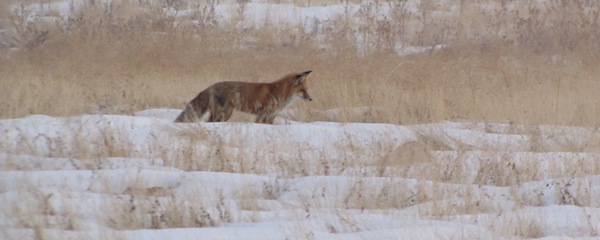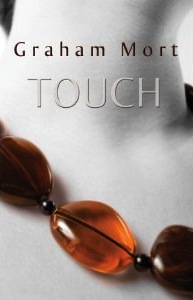
photo by Bryant Olsen
In his essay, shortlisted for the 2013 THRESHOLDS International Short Story Feature Writing Competition, Tom Vowler recommends Graham Mort’s short story collection Touch.
*
Comments from the judging panel:
‘As compelling as its subject’; ‘a vibrant, intelligent and highly enjoyable essay’; ‘engaged fluently and subtly with the collection’; ‘intriguing reflections on the short story as a form’, ‘a wonderfully precise use of language throughout – such a pleasure to read’.
*
by Tom Vowler
I was slow coming to this book, but then good books, like lovers, have a way of finding you. And so for several nights over the holidays I settled by a fire, glass of something in hand, savouring a collection I imagine will become a favourite.
The stories in Touch are bestowed with a poet’s precision, never more so than when it comes to their landscapes. Beautifully crafted worlds, rich with nature’s rhythms, its chords and hues unspool with a resonance, a cadence that only the sheerest affection for words and their power allows. Mort’s characters are wedded to the land – they are never merely its inhabitants, but products of the physical realm they occupy, mutually dependent, their histories and futures inexorably bound, as in the story ‘Rain’:
The steps down into the garden were short but steep. The terrace had been built on a ridge of the old river valley. The brook she’d played in as a child had been culverted to make room for the estate. There it was, hidden, the water flowing underground, flowing towards the sea through pure darkness. Under the houses. Under the lives being lived in them.
And the landscapes in Touch, more than simply evocations of beautiful or stark or dramatic places, often emerge as characters themselves, alive and capricious, the reader compelled to invest in them as much as they might the people who live there.
Texture, too, is important to Mort – one imagines a careful sculpting during composition, phrases lovingly hewn, furnished with the arena they deserve, as an expectant parent might prepare a nursery. Take the opening of ‘Daniel’:
The light is pale. Sharp as newly sliced lemons. The cat sleeps in the dust under the sideboard. That smell of old apples, urine and mould; an earthy scent of geraniums.
We recognise this light absolutely now, sharp as newly sliced lemons. Think of all the more prosaic and ineffectual ways Mort could have described it. From these opening lines the reader is hypnotised, propelled to a heightened state, content to yield to the narrative in the knowledge we are in safe and expert hands. There are few of Joseph O’Connor’s ‘quiet bombs’ here, or ‘hand grenades rolled across the kitchen floor’ as Enright once described McGahern’s stories, but a greater resonance is achieved in the absence of such grandiose and dramatic epiphanies. Later, as Daniel, an ageing farmer, guards his sheep from a fox, tension rises:
Snow has made the fox bold. From the corner of his eye, Daniel sees it haunching across the middle of the field. It moves belly-low like a dog rounding up its flock. There is snow on the gun. Daniel wipes it away with his cuff and raises the twin barrels slowly. The fox is twenty yards away. It hasn’t scented him yet. Fire, sweat, soap and gun oil: the stink of man.
 The short story is at its most accomplished when aspects of language, narration and character assemble perfectly, allowing an almost transcendent quality to surface, the piece rupturing its own boundaries, its lingering whole superior to the sum of its parts. Punching above its weight, an intensity must be achieved – though rarely one derived from plot or narrative arc alone – and Mort’s skill here is to render an emotional manipulation from the motifs and objective correlatives he employs. Perhaps the goal of the short story writer (if such a creature still exists) is to achieve purity in the work, a perfection through compression, though of course the best stories tend to be flawed in some way.
The short story is at its most accomplished when aspects of language, narration and character assemble perfectly, allowing an almost transcendent quality to surface, the piece rupturing its own boundaries, its lingering whole superior to the sum of its parts. Punching above its weight, an intensity must be achieved – though rarely one derived from plot or narrative arc alone – and Mort’s skill here is to render an emotional manipulation from the motifs and objective correlatives he employs. Perhaps the goal of the short story writer (if such a creature still exists) is to achieve purity in the work, a perfection through compression, though of course the best stories tend to be flawed in some way.
Meditations on enduring human truths form in Touch, yet never at the expense of the unfurling narratives: familial binds, the gravity of the past, of what can be borne by the heart, of what cannot. Mort is expert in implying something’s presence, in allowing the reader to find their own meaning and hope and delight within the lacunae, to complete the aesthetic journey he so brilliantly sets them on (does a story exist if there’s nobody there to read it?). Like a gloaming seascape by Turner, much is veiled in these stories, demanding ever deeper scrutiny, each rereading relinquishing a nascent truth, a previously unfelt feeling. Both effect and affect are brought to bear by what is left half-said, or not said at all.
Much of this collection is elegiac – characters flanked by the ghosts of memory, gripped by loneliness, lives lost to love and the vagaries of fortune – and yet, as with the best stories, there remains a warmth and occasional humour woven through them, an aching beauty, an elegance and grace that is both affecting and comforting. More than that there’s a quiet dignity here.
 Touch is like a classic concept album of old, the stories linked thematically and tonally to allow a glorious architecture to form, the fictions communicating with each other, eddying around their neighbours, feeding off each other.
Touch is like a classic concept album of old, the stories linked thematically and tonally to allow a glorious architecture to form, the fictions communicating with each other, eddying around their neighbours, feeding off each other.
Of course reading such masterful prose as a writer always risks ambivalence. It’s easy to suspect, probably erroneously, that one’s rapture and appreciation of the work are amplified when you yourself dabble in the form. But equally the experience can be deflating, the artist confronted with what they regard as the zenith of their medium, a sense of how can this be equalled. (My own copy is littered with reverential underlining and double exclamation marks – the tool of chess annotation to denote an extraordinarily strong move). Indeed, the collection’s opening sentences from ‘A Walk in the Snow’ give us a compelling sense of what’s to come.
Snow fell again last night, blowing against the windows, tapping its fingers as we lay huddled in bed. It fell in huge sweeps. Total. A white anaesthetic dulling the trees and hedgerows. Putting to sleep rabbits and weasels, the badger and the shrew as they hid in the curdled earth. I imagine ice crystals shaken from their fur, nocturnal prints as they snuffle in the snow under a nail clipping of moon.
If at times the novel can be said to creak and groan beneath the weight of its own contrivance, then this collection is the perfect antidote: vibrant and sensuous, lyrical and profound, it is a quiet masterpiece, one that enriches through its wonderment. To read this book is to understand the short story’s potential, its flair to simultaneously give great pleasure and reveal all that is human. It’s been said that some truths can only be expressed through the short story, and in Touch we are given a glimpse of such.
~
 Tom Vowler’s debut short story collection, The Method, won the international Scott Prize in 2010 and the Edge Hill Readers’ Award in 2011. Now an associate lecturer at Plymouth University, his debut novel, set on the uplands of Dartmoor, was published in April 2013. Tom is also Assistant Editor for the literary journal Short FICTION. In 2008 he graduated with an MA in Creative Writing and is now studying for a PhD. More at www.tomvowler.co.uk
Tom Vowler’s debut short story collection, The Method, won the international Scott Prize in 2010 and the Edge Hill Readers’ Award in 2011. Now an associate lecturer at Plymouth University, his debut novel, set on the uplands of Dartmoor, was published in April 2013. Tom is also Assistant Editor for the literary journal Short FICTION. In 2008 he graduated with an MA in Creative Writing and is now studying for a PhD. More at www.tomvowler.co.uk


Beautiful writing – the feature itself as well as the story extracts. Thank you.
I really like this collection too Tom, it’s definitely one to savour. Great feature piece.